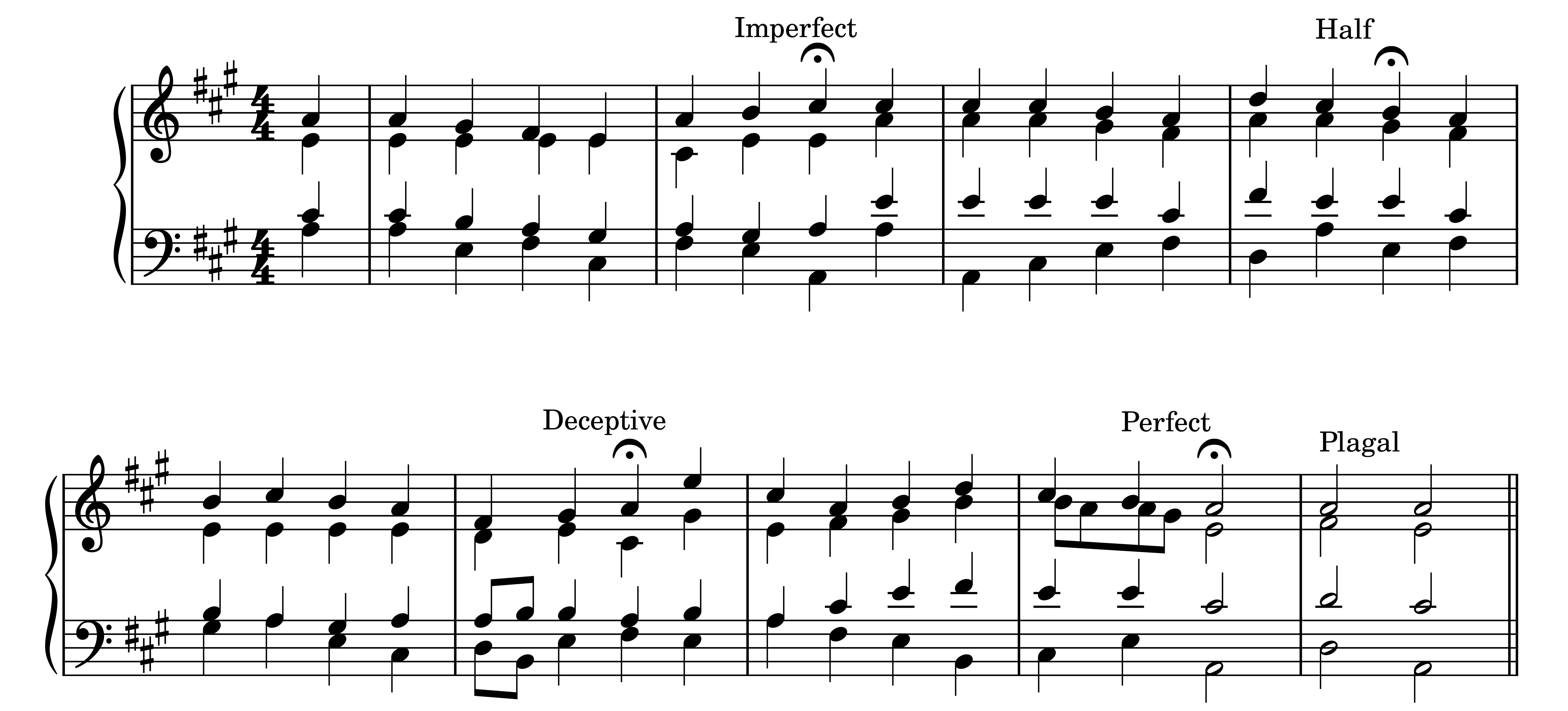Introduction to Harmonic Dictation
40 Ear Training – Cadences
Cadences
A cadence is composed of the two final chords in a harmonic progression that ends a musical phrase.
We will start our study of harmonic dictation with cadences, because they are familiar chord progressions and likely already familiar to you. We are “starting at the end” like this because cadences are predictable, and success in ear training is all about identifying predictable patterns.
Definitions
There are five types of cadence:

Commit this explanatory table to memory:
| Cadence Type | Perfect Authentic Cadence | Imperfect Authentic Cadence | Plagal Cadence | Deceptive Cadence | Half Cadence |
| Chords | V-I | V-I (or V7-I, etc.) | IV-I | V-vi (or V7-vi) | I-V |
| Features | Soprano must resolve to tonic pitch; root position V must resolve to root position I; no seventh chord as the dominant harmony; often found at the end of a piece | Soprano doesn’t have to resolve to tonic; dominant function doesn’t have to be in root position; dominant function may be V7 or vii0(7) | Also known as “Amen Cadence”; often appears in traditional church music; relatively rare in Classical-era music | Called “deceptive” because it comes as a surprise instead of a PAC | Often appears at mid-point of a phrase |
Cadences in Context
Sometimes we can locate all five of these cadences within a single piece. One well-known and much-quoted example of this can be found in the four-part setting of Psalm 100 from the Genevan Psalter of 1551. Play this piece on the piano a few times, lingering on the cadences to internalize their sound, how they look on the page, and how they feel under your fingers on the piano. Play them both as block chords and as arpeggiated chords so that you can also notice the voice-leading as you progress from chord to chord.


